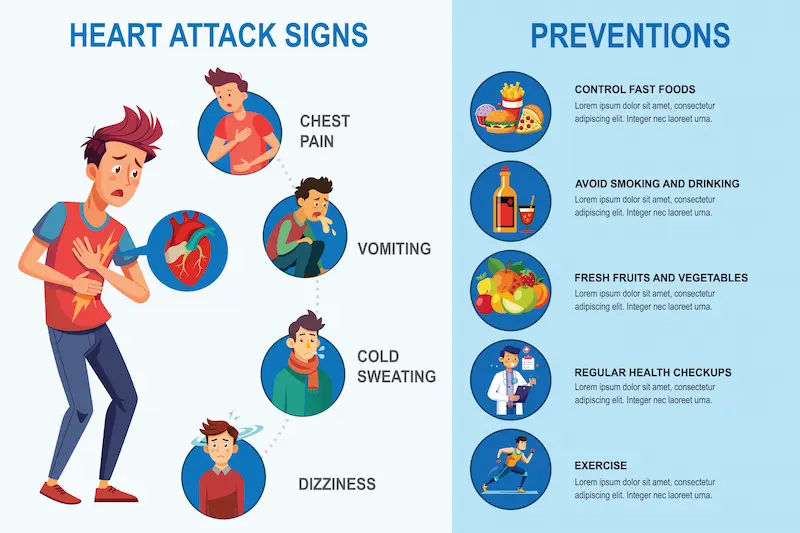- male
- 30 Years
- 29/01/2025
I'm really struggling and could use some advice. Ive been feeling exhausted for the past three years and I'm dealing with severe shortness of breath. My mornings start with a really bad headache, and my resting heart rate is consistently high, hovering around 100 to 110, and it shoots up to 180 to 200 just by climbing a single flight of stairs. My weight is normal, so Im confused about what might be causing this. I used to be pre-hypertensive with a blood pressure of 137 over 91, and then I was on Inderal la 20 in July and August of last year. Now, my BP usually sits in the 95 over 83 or 100 over 85 range when I'm resting, which makes me wonder why my pulse pressure is so low. I was diagnosed with allergic rhinitis and allergic bronchitis in January, and Ive been taking mondeslor for the past two months, but Im not seeing any improvement. Ive done a pulmonary function test, ECG, and echo, and they all came back normal. I don't have anxiety issues and generally, I'm a calm person. It's all pretty frustrating, and its impacting my everyday life. What could be going on?
Answered by 1 Apollo Doctors
It sounds like you are experiencing symptoms of fatigue, dyspnea, headaches, and low pulse pressure despite being on Inderal LA 20 for hypertension. Since your PFT, ECG, and echo results are normal, it is important to consider other possible causes for your symptoms. Given your history of allergic rhinitis and allergic bronchitis, it is possible that your symptoms could be related to an underlying respiratory issue. Considering your symptoms and medical history, I would recommend discussing with your doctor the possibility of trying a different medication for your allergic conditions. You may benefit from a nasal corticosteroid spray such as Flonase (fluticasone) for allergic rhinitis and an inhaled corticosteroid like Qvar (beclomethasone) for allergic bronchitis. These medications can help reduce inflammation in your airways and improve your breathing. In addition, since you are experiencing persistent headaches, your doctor may consider prescribing a medication like Propranolol (Inderal) at a higher dose to help with both your headaches and high heart rate. It is important to follow up with your doctor regularly to monitor your symptoms and adjust your treatment plan as needed. Overall, it is important to continue working closely with your healthcare provider to determine the underlying cause of your symptoms and find an appropriate treatment plan.
Dr. Anshul Suggests...
Consult a Cardiologist
Answered 04/07/2025
0
0

More Cardiology Health Queries
View allI'm wondering if taking a beta blocker before getting an ECG might hide any signs of a heart attack. Could it affect the results or mask any important signals that might indicate a problem?
Taking a beta blocker before an ECG can indeed affect the results by potentially masking or hiding signals of a heart attack. Beta blockers can lower heart rate and blood pressure, which may impact the ECG readings. It is generally recommended to avoid taking beta blockers before an ECG if there is suspicion of a heart attack. If you are scheduled for an ECG and are taking beta blockers, it is advisable to consult with your healthcare provider about whether to temporarily stop the medication before the test.
Answered by 1 Apollo Doctors
I found out about my high blood pressure about two years ago when my family doctor prescribed me Telma 40. I've been taking it, but I sometimes forget to take it at the same time every day. Since I stopped regularly monitoring my BP, I didn't notice anything unusual until recently. I checked my BP a few days ago, and it read around 14090, usually falling within 13585 to 14590. I've been wondering, even though I'm taking Telma 40, why would my BP still be at 14090? Could my less active lifestyle over the past couple of months be contributing to this? I'm a bit concerned and curious about what's going on.
Lifestyle modifications such as regular exercise, maintaining a healthy weight, reducing sodium intake, and managing stress are important in controlling blood pressure. I recommend incorporating regular physical activity into your routine, such as brisk walking or swimming for at least 30 minutes a day. Additionally, try to follow a balanced diet rich in fruits, vegetables, and whole grains while limiting processed foods and high-sodium items. It is also important to monitor your blood pressure regularly and take your medication consistently at the same time each day to optimize its effectiveness. If you continue to have concerns about your blood pressure readings, consult with your healthcare provider for further evaluation and guidance.
Answered by 1 Apollo Doctors
I recently had an echo test and it showed Grade 1 diastolic dysfunction and mild mitral regurgitation. My ECG also has prominent R waves and my blood pressure is pretty high at 130100. I'm only 29 years old and I'm really concerned about what all this means for my health. Is there something serious going on here? What steps should I take next?
it could be due to electrolyte imbalane ,hypertension and valvular heart diseases.Paient is advised for low salt intake , high potassium intake , regular aerobic exercises , also alcohol and smoking cessation
Answered by 1 Apollo Doctors
Disclaimer: Answers on Apollo 247 are not intended to replace your doctor advice. Always seek help of a professional doctor in case of an medical emergency or ailment.



